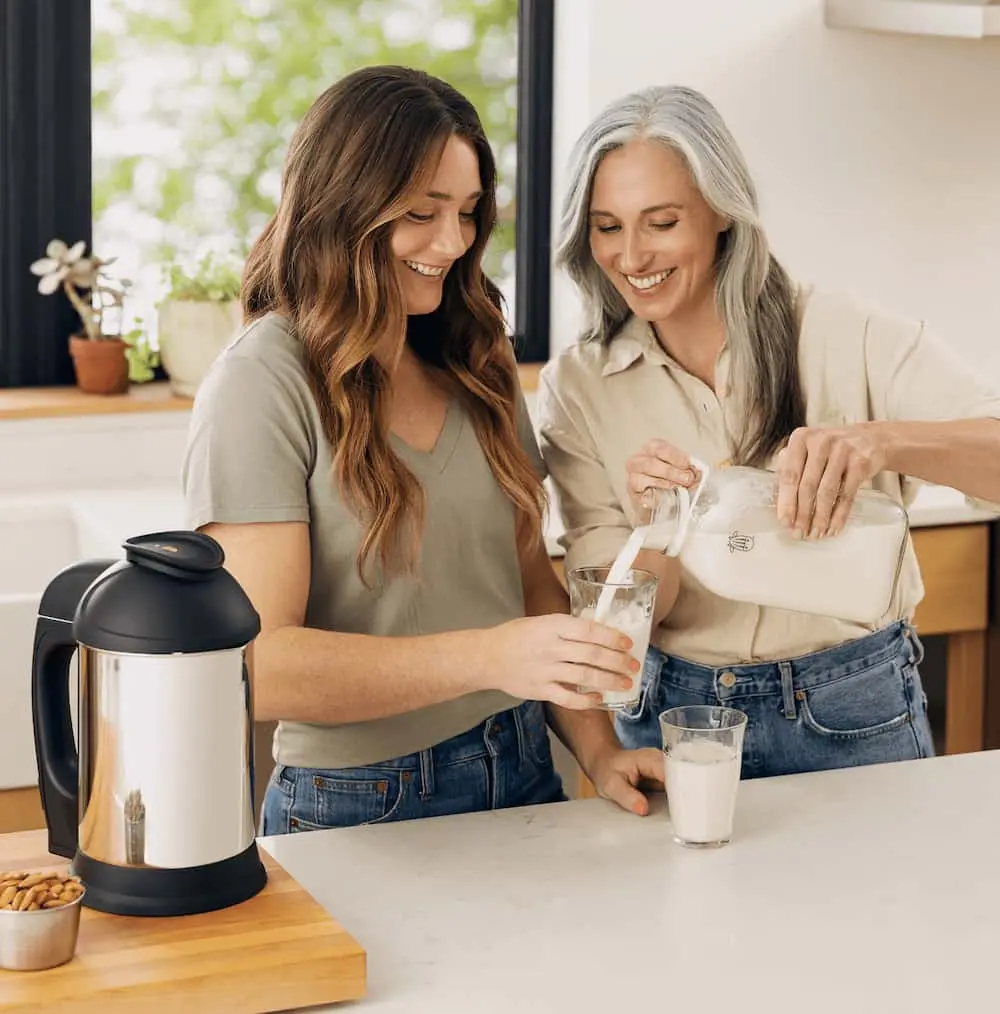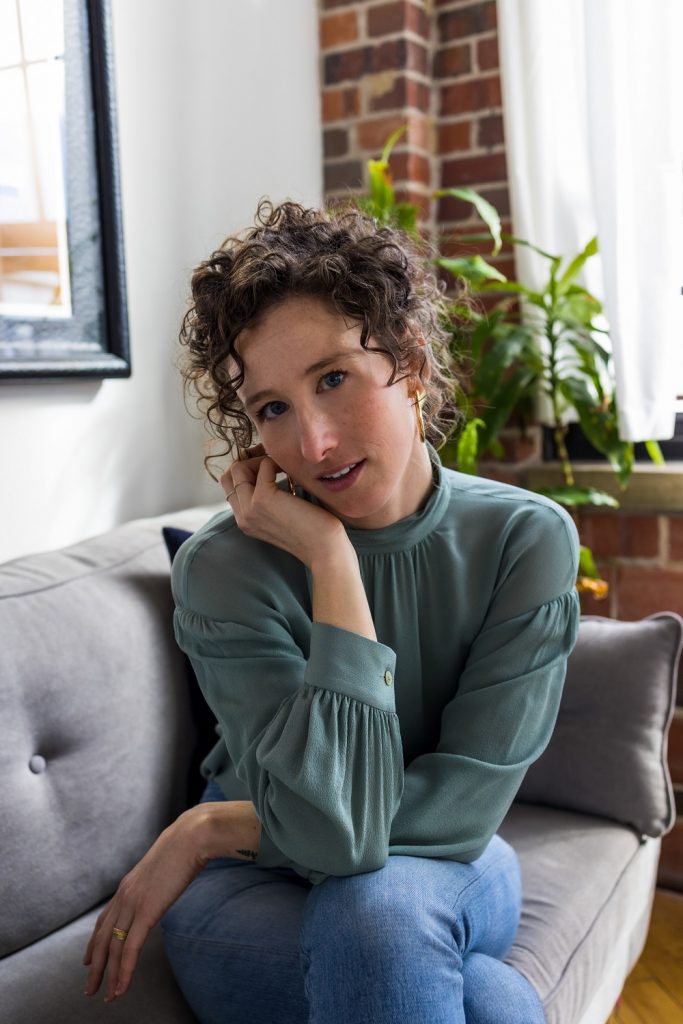By Ali Weeks
2022 will be a record year for walking down the aisle. About 2.5 million couples are slated to get hitched in the US alone, an uptick due to Covid postponements and people (like my fiancé and myself) who thought 2 years since the start of the pandemic would offer enough time for risks to subside. But there’s another interesting trend here.
In many Western countries, the average age of newlyweds hovers around 30 years old. That age bracket—and the one below it—contains the population of people most motivated to take action around the climate crisis. An eco-friendly wedding offers an opportunity to commit to our values as we commit to our partners.
I don’t claim to be a perfect environmentalist, and as hard as I try, I’m not zero waste in my everyday life. But my fiancé and I are doing our damnedest to make our celebration sustainable. Here’s how we’re planning a (nearly) zero waste wedding—and coping with whatever judgements come our way.

Excess is Not a Requirement
Weddings often come with this attitude of nonchalance around excess—“It’s a wedding, so let’s throw a bunch of stuff at it!”
This is not my fiancé and I at all. It was freeing to realize we didn’t have to follow the trend.
We realized right away we didn’t want to make anything branded to give our guests. We did decide to make welcome bags, but we’re making them zero waste. I’ve been collecting thrifted jars for us to fill with bulk snacks. We’ll nestle those in reusable market bags alongside fresh fruit and cans of sparkling water. No chip bags, candy wrappers, or plastic water bottles in sight.
We’re also bucking the trend in terms of the gifts we receive.
Between wedding showers, bachelor/bachelorette parties, and the big day itself, it’s become the norm for new spouses to come away with mountains and mountains of gifts. It takes resources to produce, ship, and sell all of those items—not to mention the gift wrap they’re packaged in. We didn’t want to create that excess.
Besides being rather minimalist, my fiancé and I are in our 30’s and have most of the household items typically on wedding registries. Plus, we get the majority of what we need secondhand. I can’t stomach asking my friends and family to spend $300+ on a brand new set of dishes when I know I can get something gorgeous from Facebook Marketplace for $75. (And let’s be honest, I love the hunt.)
We created a nearly zero waste wedding registry on Honeyfund to accommodate our hodgepodge wish list. We have a few kitchen things and some camping and outdoor recreation gear. We also have honeymoon experiences: a hotel fund, activity fund, etc. Then we’ve included a couple sustainable wedding presents that are luxuries (buy us a Ridwell subscription and an Almond Cow, please?!).
Rather than becoming a source of unnecessary stuff, our registry is an invitation to get to know us better and support our lifestyle of valuing experiences over things.
When it comes to those physical gifts, we’re making it clear that they can be delivered naked. Even though it’s called wrapping paper, the vast majority of gift wrap is coated in plastic and non recyclable. We want to stress to people that they don’t need to dress anything up in paper and ribbon for our benefit.
I’ll admit—this is a little tricky. The fact that people want to give us gifts in the first place overwhelms me with gratitude. Telling them how to give it makes me feel ungrateful and entitled. I’m trying to get over this by drenching everyone in kindness and respect. Here’s a note I have on our wedding website:
“If you decide to bring or send a gift, we’d be thrilled for you to skip the wrapping paper and ribbon. Thank you so much for helping us celebrate in sustainable simplicity.”

I’ve found that the more respectful and gracious I can be when speaking about waste, the better I’m received. I was nervous to tell my aunt throwing my wedding shower that I wanted it to be plastic-free, but her response was warmer than I ever could have imagined. Rather than seeing me as unappreciative as I feared, she suggested evites to cut down on trash from invitations!

Planning a Sustainable Wedding Day
On the day of our wedding, we’re being extra conscious of the waste we and our guests create.
Rather than celebrating with confetti (aka festive microplastics) or bubbles (whimsical, but housed in plastic bottles with little plastic wands), we’re considering earthier confetti made from dried flowers like lavender or hole-punched leaves.
Our venue doesn’t allow single-used plastic of any kind, so we didn’t even need to put our foot down about plastic water bottles or cocktail straws. But I did email our caterer about offering glass cups for water and iced tea before the reception rather than compostable ones. Compostable is great; reusable is better.
When it comes to food and flowers, we landed the sustainable wedding vendor jackpot.
Our venue is an adorable property with goats and chickens, a flower farm, and vegetable gardens. Our florist picks all of their blooms from the property itself, including a rainbow assortment of dahlias, boho-chic pampas grasses, and gathered wild feathers. During the ceremony, I’ll be able to look over and see the very plants that grew the bouquet in my hands. It makes me absolutely giddy.
We chose our caterer for their sustainable values, too. They source produce from the gardens at our venue and other local farms in the area, and they determine the exact menu based on what’s in season. When it comes to protein, we decided to offer their sustainably sourced chicken and fish rather than steak. We’re not fans of steak to begin with, so this was a no-brainer when it comes both to saving some money and easing our impact.
I asked our caterer about reducing food waste, and they recommended we bring reusable containers to take home excess food. As far as table scraps, they’ll scrape our guests’ plates into a bucket to be fed to the animals on the property the following day. How cool is that?
I realize feeding goats and chickens leftover appetizers isn’t an option everywhere. If they didn’t have that solution on hand, we would ask about a commercial compost bin or a local garden or farm that would welcome the scraps.
As far as beverages and alcohol, we found a local liquor store with a buyback program. We can purchase however many cases of alcohol we think we’ll need, and if it’s too much, we can return what we don’t use. It’s a great way to only pay for what we’ll actually use and to avoid a towering stack of wine crates cluttering our shed.
We want our reception to feel warm and welcoming, but don’t want to purchase or DIY a bunch of decor destined for dusty attics and, eventually, the landfill. Instead, we’re renting everything from flatware to bud vases from our vendors and borrowing lights from the venue. This way we know everything can be used again.

Zero Waste Wedding: It’s Not About Perfection
Sometimes in conversations about climate, we can get trapped in black and white thinking: Either you’re vegan or you’re not. Either you shop secondhand or buy new. Either you’re saving the planet or you’re destroying it.
Nothing is that simple, and attempting to plan a zero waste wedding is proof. First of all, sometimes minimal, eco-friendly options are cheaper or the same cost, but sometimes they’re decidedly more expensive. My fiancé and I are prioritizing climate, and we’re working within a budget. We’ve made compromises to satisfy both our values and our bank accounts.
For every eco-conscious decision we’ve made, we’ve also discussed what we’re not willing to sacrifice and have come to accept the environmental damage that will cause. Invitations, for example—we’re sending paper ones rather than electronic. My dress is new, not vintage. We’re planning on having Polaroid cameras which have plastic film cartridges that come in plastic wrapping. (I am, however, trying to find the cameras and film on Marketplace.)
But the biggest concession we’ve made by far is airplane emissions.
Between the two of us, we’ve moved around a lot. Every single family member and a fair number of our friends live out of state. When we decided to plan a wedding, the first decision we made was to include extended family. That instantly meant asking people to board planes, rent cars, and emit greenhouse gasses.
It’s not a perfect scenario, but it’s caused us to double down on our commitment to reducing waste in other ways.
We’re definitely earning the “nearly” in “nearly zero waste wedding,” and I’m sure there will be things we overlooked. But we’re not failures for creating trash, and it wasn’t all for naught if Aunt Sandra gifts us an extravagant espresso machine we didn’t ask for, sheathed in glittery paper. There’s only so much we can control. This is about putting in the effort to be conscious and accepting however people respond—not about perfection.
Some people might call us hypocrites for skipping plastic water bottles while we ask people to take a flight. Others may think we’re tacky for requesting a nice dinner on our honeymoon rather than a set of flatware.
I’ve come to terms with the fact that this value of mine is controversial. It seems ridiculous that it should be—it’s our planet; you can’t get much more universal—but for many reasons, it’s triggering to people. That’s ok. People can have their reactions. Their opinions are not of my concern.
Our wedding is a celebration of our relationship, not the opportunity to educate Uncle Frank about how long plastic takes to decompose. (It’s up to 1,000 years, Uncle Frank, but I digress.) All we can do is make decisions grounded in our beliefs and detach from anyone else’s opinions.
Thirty years from now, I’ll remember being enveloped in love by family and friends on my wedding day. And if I said nothing, there would be a 30 year old heap of plastic sitting in a landfill, leaching chemicals into the soil.
I choose a moment of discomfort now—and whatever opinions someone chooses to form—over that pile of trash every time.
About the Author

Ali Weeks, founder of Moxie Writing Co, is a writer, editor, and ghostwriter living on the Arapaho, Cheyenne, Ute, and Očhéthi Šakówiŋ land of Denver, Colorado. Her writing seeks to understand and deepen the human experience and our connection to nature.